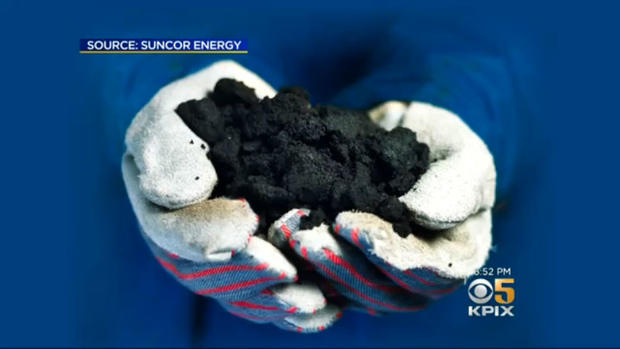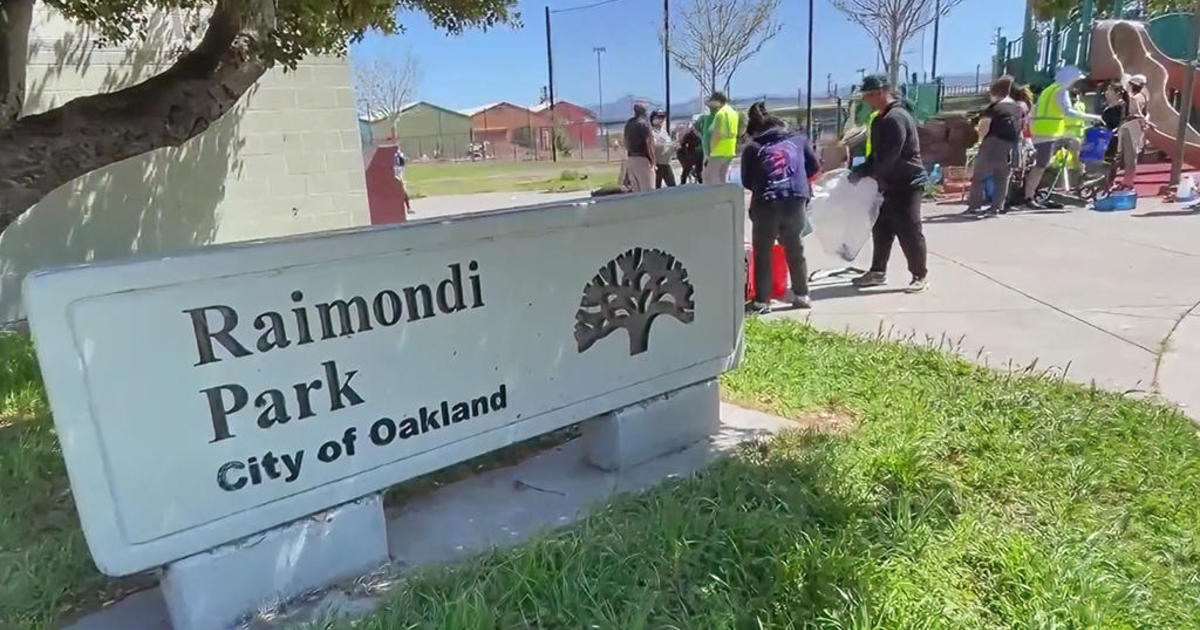Oil Tankers May Carry Harmful Tar Sands Through Bay Area Waters
RODEO (KPIX 5) -- The Bay Area is one of the biggest oil refining hubs on the West Coast. Tanker traffic is always heavy and it's on target to get heavier and potentially riskier.
When it comes to big oil, California politicians hope you won't pay attention to what's criss-crossing the San Francisco Bay.
Oil tankers may one day be carrying the heaviest, dirtiest oil on the planet: tar sands crude from Alberta, Canada.
"That oil could end up sinking to the bottom of the bay," said Sejal Chokski-Chugh, executive director of Baykeeper, a nonprofit watchdog group that monitors pollution in the bay.
"Many of the agencies have no idea how to respond to that kind of an oil spill because they've never done that before in a marine environment," said Choksi-Chugh.
She says the telltale sign that tar sands could be coming is a marine terminal in the Carquinez strait, where oil tankers deliver crude to the Phillips 66 refinery. The refinery wants to expand the terminal to more than double tanker traffic, from 59 to 135 ships a year.
Phillips 66 is the largest importer of tar sands crude in the U.S. According to a flow chart from a 2013 investor conference P66 has plans to deliver it to the San Francisco refinery over land by train, and down the Pacific coast by ship.
Environmental groups sued and recently stopped the train plan in its tracks. The marine terminal now becomes the other option.
"Our bay is becoming nothing more than a marine freeway," said Maureen Brennan.
Brennan and her activist friend Nancy Reiser live in Rodeo and Crockett, communities tucked into a row of the Bay Area's refineries, which includes Phillips 66.
"Not only is there no spill response plan for a tar sands spill … there have been two spills at that marine terminal," said Reiser.
The most recent spill in 2016 sent dozens of East Bay residents to the hospital. Public records show Phillips 66 has been fined by the air district more than a dozen times each year for emissions violations.
Yet the refinery recently received approval to process an additional 4,000 barrels of crude a day.
Reiser and Brennan worry the terminal expansion will get rubber stamped as well.
"The money that goes to operate the Bay Area Air Quality Management District comes from permits to increase production so with every permit they grant they get more money," said Reiser.
Since 1987, Phillips 66 has paid the air district nearly $30 million in permit fees and fines, leading environmentalists to question whether there's a conflict of interest.
"The district is following the law," said Pam Leong. Leong is in charge of issuing permits to Bay Area refineries for BAAQMD.
KPIX 5 asked her why a refinery with such a lengthy history of emissions violations would be allowed to expand. Leong's response: "Regulations are specified in the rules. If they meet those regulations they are allowed to get their permit by law."
The more KPIX 5 pushed, the more Leong's communications team interrupted the interview.
"You keep referring to this as a bad history. That's not how the air district would characterize it," said BAAQMD communications officer Lisa Fasano. She told KPIX 5 our questions were not for Leong to answer.
Phillips 66 turned down our request for an interview, but in a statement told us the marine terminal application is not related to, nor reliant upon, any other recent or future projects at the refinery.
Back on the Bay, Choksi-Chugh and the Baykeeper crew are patrolling and monitoring developments.
"An increase in tar sands and tanker vessel traffic through the bay would be an incredible risk and we need to make sure that we are really evaluating that risk properly and making sure that we are not only preventing those tankers form coming into the bay but prepared," she said.
Reiser and Brennan say that if the regulators can't help them, they'll fight it out on their own to keep their community safe.
"I don't believe it for a second they can protect us. They choose not to. It's all about money honey," said Reiser.
Phillips 66 says the marine terminal expansion will not allow any increase in the amount of crude that can be processed at the refinery. Here is the fact sheet that the company sent us:




